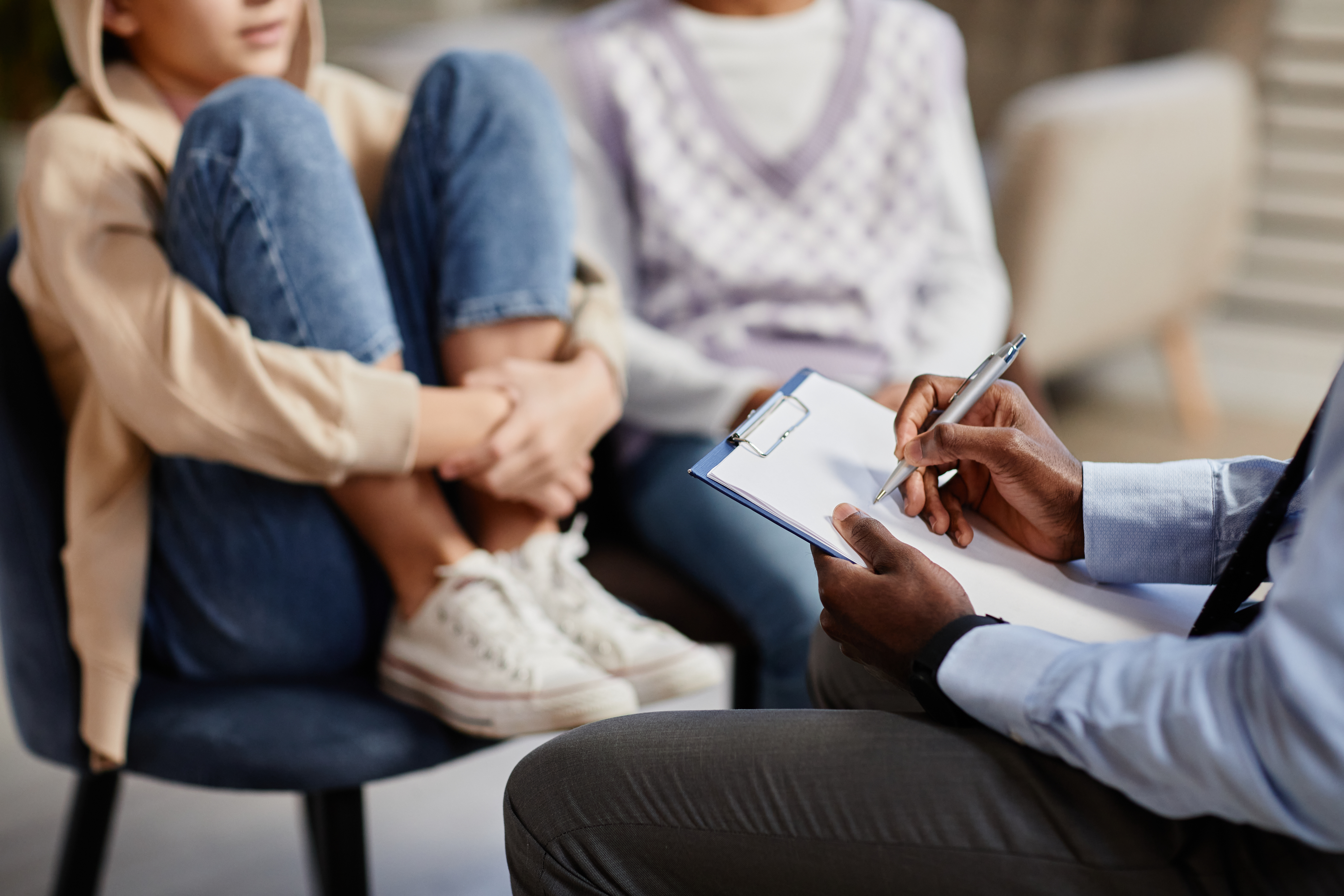Idaho Youth Ranch
Subscribe to our blog
%20(1)-1.png?width=907&name=Untitled%20design%20(21)%20(1)-1.png)
Childhood should be a safe, happy, carefree time, full of fun and exploration--but for some kids, it's not. Depression and anxiety make it difficult for children to enjoy life to the fullest, and if not adequately addressed, can cause problems that last long into adulthood.
What Causes Anxiety and Depression?
While there may not always be one specific reason you can pinpoint, depression and anxiety in children are common, and can come from any number of factors, including genetics, environment, trauma, and more.
Internalizing Disorders
Since depression and anxiety both involve patterns of unhealthy thinking, they are generally referred to as "internalizing disorders." Just because they exist inside a child's head, this does not mean these disorders aren't real, frustrating, and unhealthy-- just like physical illnesses. And, just like a physical illness, these disorders can impact their physical health, their social life, their school work, and nearly every facet of their life.
Sometimes it can be difficult for children to put these thoughts and feelings into words, so it's important to know how to recognize the signs of both anxiety and depression in order to get them the help they need.
Anxiety Symptoms in Children
Anxiety looks a little different in each child, but some of the most common symptoms are:
- Irritability and frustration
- Sleep issues
- Physical problems like headaches and stomachaches
There are different types of anxieties, including phobias (fear of specific situations or things), generalized anxiety (a feeling of "doom" and excessive worry about the future), social anxiety (extreme stress about being judged by others, often resulting in shyness and social issues), and panic disorders (episodes of intense fear with physical symptoms like shaking, sweating, and pounding heartbeat).
Depression Symptoms in Children
Childhood depression can be difficult to categorize, but it often looks like:
- Inexplicable sadness and hopelessness
- Changes in eating habits
- Changes in sleeping habits
- Restlessness
- Lack of interest in hobbies or fun activities
- Feelings of uselessness, guilt, and frustration
Depression can also lead to suicidal ideation and sometimes attempts, so it's crucial that children with depression get help.
If you struggle with anxiety, you’re not alone. Research shows that nearly 1 in 3 adolescents between ages 13–18 experiences an anxiety disorder.
While there isn’t a cure for anxiety, you can practice healthy coping skills to manage your symptoms. Let’s review some options. Learn more about teen anxiety.
Deep Breathing
The next time you feel overwhelmed, take a few deep breaths. Inhale air through your nose for at least five counts. Then, exhale the air through your mouth for five counts. Practice at least ten times. This simple act helps to slow down your breathing, which can promote calm and relaxation.
Try other breathing techniques to find what works for you. There are many different methods that people find helpful, such as alternate nostril breathing or 4-7-8 breathing.
Mindfulness meditation is a great practice for learning to breathe, being mindful, and slowing anxiety. You can find exercises online, download an app, or search for guided mediations on Spotify. Meditating helps you focus on your breath and is a popular, all-natural way to deal with mild anxiety.
Get Active
Physical activity can help reduce anxiety. Consider taking a brisk walk, doing a few yoga stretches, dancing, or engaging in any other exercise that feels good. You don't have to do anything too strenuous, but move your body to get some endorphins flowing.
Sometimes the thought of exercise can be daunting if you're super anxious or dealing with depression, but even just moving your body can make a difference in your body's response to anxiety. If you have a dog, take them for a walk. Connect with a friend over Zoom for yoga. Go swimming, or take a hike.
Journal
Set a timer for five minutes and allow yourself just to write. Try not to overthink while you journal. Ideally, this exercise can help you understand the situation more clearly, and it can also give you a better perspective of your own thoughts and patterns.
Many people find regular journaling is a good outlet and a way to reduce anxious thoughts and feelings. If it's helpful, try to make a practice of it, and let yourself write everyday or a few times a week.
Reach Out for Support
Share how you’re feeling with someone you trust. Feeling safe and supported by another person can make a profound difference. Additionally, just spending time hanging out with loved ones can improve your confidence and mood.
Oftentimes, anxiety can get worse when we keep it all in. Even if you feel that what you're anxious about is silly, just saying it out loud to a trusted friend or family member can help lessen the feelings of anxiety.
Try Therapy
If it seems like nothing is working (or things are getting worse), therapy can help you understand your anxiety triggers. It also offers a nonjudgmental space to learn and practice healthy coping strategies.
There are many different types of therapy, and many are meant to give you tools to manage your anxiety. Be open to trying different methods so you can find the best fit for your needs.
Contact us today to learn more about therapy, including equine, group, family, or individual therapy.
Treatment Options in Idaho
The good news is that no child has to live with depression and anxiety. Idaho Youth Ranch always offers help for struggling kids and families, so that childhood can be safe, happy, and carefree again.






Leave a Comment